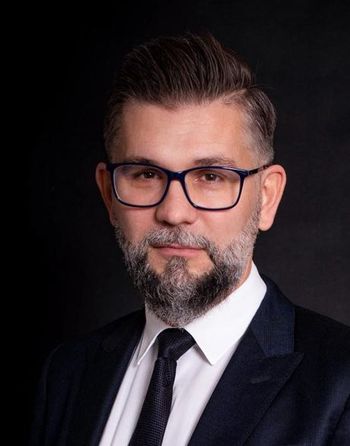
Heroic Measures Extend Life of Surgical Pioneer and Stir Debate
HOUSTON -- Running counter to the 97-year old patient's expressed wishes, surgeons here repaired a dissecting aortic aneurysm in Michael DeBakey, M.D., the legendary heart surgeon. The case stimulated questions about patients' rights, end-of-life care, and costs.
HOUSTON, Jan. 5 -- The rules are different for demigods.
On the final day of 2005, pioneering heart surgeon Michael E. DeBakey, M.D., was alone at home preparing a lecture when he experienced sudden, piercing chest pain that migrated to his neck, symptoms he soon came to recognize as those of a dissecting aortic aneurysm.
Dr. DeBakey was 97-years-old and had decided that he didn't want to endure the surgery necessary to repair the defect. With an irony worthy of Greek tragedy, Dr. DeBakey himself had helped to develop the procedure and vascular graft in 1953, using a Dacron sheath he devised at home on his wife's sewing machine.
Yet Dr. DeBakey eventually underwent the grueling seven-hour procedure. "If they hadn't done it, I'd be dead," he said.
The surgery, performed in early February 2006, bought Dr. DeBakey at least one more year, but at the cost of a long, painful, and difficult recovery marked by kidney failure and dialysis, a tracheostomy, six weeks of mechanical ventilation, parenteral feedings, and the possibility -- although not the eventuality -- of brain damage.
The bill -- no one is quite sure of the amount, and Methodist Hospital here won't comment -- is estimated to be well more than million.
Few would argue that the world is richer for the presence of Dr. DeBakey, a man who comes as close as any to the status of a deity in the pantheon of modern medicine and surgery.
But the facts of his case, which he and his physicians agreed to share with the public via a detailed article in the New York Times by Lawrence K. Altman, M.D., raise questions about end-of-life care, patient rights, and the use of limited medical resources.
For example, although he had a "do not resuscitate" order (which he later could not recall having made) and a note in his chart stating that he did not want surgery, and although anesthesiologists at the Methodist Hospital refused initially to put him under because of those directives, the demands of his family and the judgment of his physicians overrode Dr. DeBakey's wishes.
Then there are the questions about the patient's age -- just three years shy of the century mark when he was wheeled into the operating suite -- and the wisdom of expending so many medical resources to buy so little extra time.
In a letter to the Times, a Rhode Island physician suggested that Dr. DeBakey's medical team put their reverence and affection for the patient and the wishes of his family ahead of the express wishes of Dr. DeBakey himself.
"Progressing into a coma as one dies is a normal part of the terminal stages of many illnesses," wrote David Coppe, M.D., of Jamestown, R.I. "Directives exist to prevent such an incapacitated patient from becoming a victim of the grieving spouse or the frightened caregiver. Because of Dr. DeBakey's stature and publicity about his case, this surgery may decrease patients' right to die in a manner they desire, an unfortunate result of a remarkable feat."
That sentiment was echoed in another letter to the Times by psychiatrist Peter J. Manos, M.D, a psychiatrist at Virginia Mason Medical Center in Seattle.
"After the world's best medical care, months in the hospital and a million dollars, Dr. DeBakey and his family had a happy outcome," Dr. Manos wrote. "But for those thousands of ordinary patients who must struggle against family, church and state to refuse invasive, risky, experimental or simply unwanted care, it is not necessarily a happy ending."
In an interview, Dr. Manos suggested that the Methodist hospital ethics committee shied away from its responsibility to ensure that the wishes and rights of the patient were paramount.
The committee had met in hurried session as Dr. DeBakey's doctors and his family debated whether to proceed with surgery, and after Dr. DeBakey's wife intervened and demanded action, the "the majority ruled in a consensus without a formal vote," and no minutes of the meeting were kept, the Times article noted.
"What happens in the hospital is that ethics committees, possibly fearful of suits or just frightened by angry family members, sort of put things aside and shrug their shoulders," Dr. Manos said.
And although Dr. DeBakey now says that he's glad he had the procedure, "someone else might have been very upset that they had undergone surgery," Dr. Manos continued. "My reading of the article was that he clearly said he didn't want surgery, that the ethical principle of autonomy should hold, and that the patient had the capacity [to decide for himself]. It was cut and dried."
But in fact, patient directives are very seldom ironclad, and are often pushed aside by clinical circumstances, physician discretion, and the pressures of families desperate to do something, anything to keep their loved one around that much longer.
The key determinant, according to a prominent medical ethicist, is not the living will itself, but the will of the appointed decision maker.
"The power of the living will is in the designation of the decision maker, and not in trying to guide through a recipe what's going to happen," said Arthur Caplan, Ph.D., chair of the department of Medical Ethics and director of the Center for Bioethics at the University of Pennsylvania in Philadelphia.
"Even if you write down and stencil on your forehead 'don't treat me', but your relatives are standing in the hall saying 'Treat him,' that tends to get great weight," Dr. Caplan said in an interview.
Konstandinos Plestis, M.D., a cardiothoracic surgeon at Mount Sinai Medical Center in New York, is one of the legions of surgeons who trained under Dr. DeBakey, and as such acknowledges that he knows all the players, and has a personal bias in favor of intervention.
Dr. Plestis, who was not involved in the case, and learned the details only from the Times article, emphasized that the decision to proceed with surgery in this case was complex and was based on many different factors, including the patient's overall health, expressed wishes, the family's concerns, and the opinions of the medical team.
"In my experience, and I have seen it with many, many patients," Dr. Plestis said in an interview. "One can make a decision in the comfort of one's house without the threat of imminent death, in a different way than if the same person was in the hospital bed and the death was imminent. That factor, the factor of how close to death one is, may alter a lot of decisions in the decision making process."
Indeed, the reluctance of the anesthesiologists to contravene Dr. DeBakey's wishes was tantamount to a violation of the Hippocratic oath, suggested an anesthesiologist.
"The refusal of the anesthesiologists to care for a dying man, whether that man was Dr. Michael E. DeBakey or a homeless unknown, was unjustified," wrote Fikry B. Salib, M.D., of Stamford, Conn., in a letter to the Times. "It was established by his medical team that Dr. DeBakey would certainly die without the proposed surgery and that the only hope, no matter how slim, was the operation. An overriding concern for legal implications should never handicap what doctors are trained to do: save lives."
But Dr. Caplan suggested that it was precisely because the patient was Dr. Michael E. DeBakey, and not Mr. Michael Jones, that the patient received the extraordinary care that he did. Heroes are more likely to get heroic measures.
"There are very few 97-year-old uninsured people who would get the level of care that he got," Dr. Caplan said. "We talk about it, and claim that everyone within the health care system receives equal care, but that's nonsense, Of course people get different care depending upon whether they're rich or poor, Of course they get different care depending upon whether they're connected in some way to the medical center or not."
The ethicist added that the patient's close personal and professional relationships with his physicians -- team member George P. Noon, M.D., was Dr. DeBakey's surgical partner for more than four decades -- unquestionably colored their decision-making.
"The DeBakey case is hard, because everybody involved in his care seemed to have been a student or someone who had ties to him and that makes it hard to be objective," Dr. Caplan said. "I'm not sure you can fix that in his case since he seems to have trained every heart surgeon within a 200-mile radius. But in general it's a very bad idea for doctors to care for those who are in their families or with whom they have very close emotional ties."
"In my opinion I would have done exactly as the doctors did at Baylor," Dr. Plestis said. "I would have asked my consultants to evaluate the patient, I would have spoken to the family, and to the patient if at all possible, and made a decision based on all those factors."
Timothy J. Gardner, M.D., medical director for the Center for Heart & Vascular Health at Christiana Hospital in Wilmington, Del., also recognized that personal regard for Dr. DeBakey must have influenced his care.
"But knowing the man, and seeing his deteriorating condition, and being confident that they could do the operation successfully -- it didn't necessarily mean that he would survive, but a least they could repair the problem -- they probably were persuaded that's what he would want," he said.
One issue that all observers appeared to agree on, however, is that a patient's advanced age in and of itself should not be the determining factor in the go or no-go decision.
"Chronological age should not be used as an absolute criterion for any medical procedure, because there's so much variation and so many factors that go into deciding whether one should have an invasive procedure or chemotherapy or anything like that," said Dr. Gardner.
A primary lesson from the case "is that age is not going to drive decision making in and of itself," Dr. Caplan agreed. "There are 97-year olds who do recover and get some more life, but not all 97-year olds are comparable to DeBakey, who was in tremendous shape."
Newsletter
Enhance your clinical practice with the Patient Care newsletter, offering the latest evidence-based guidelines, diagnostic insights, and treatment strategies for primary care physicians.
































































































































